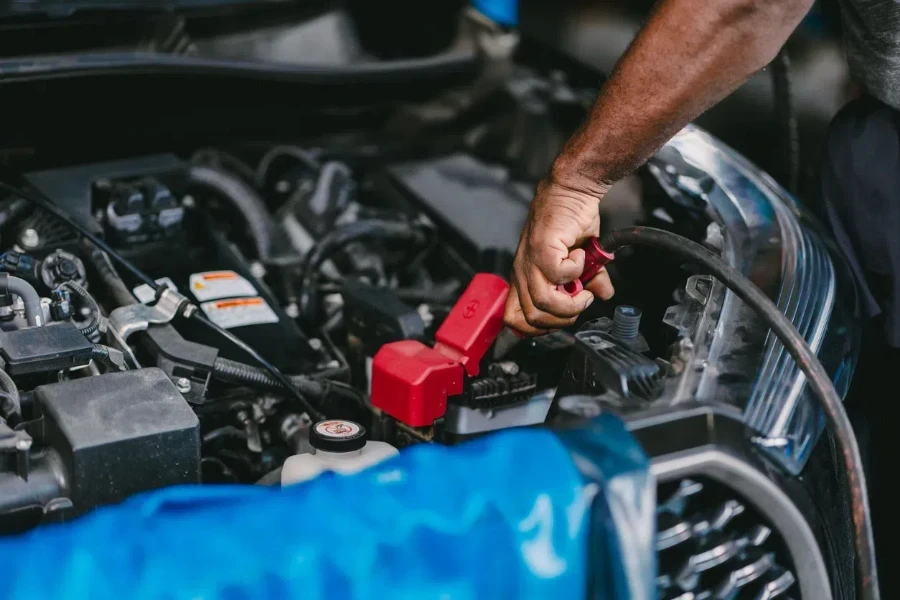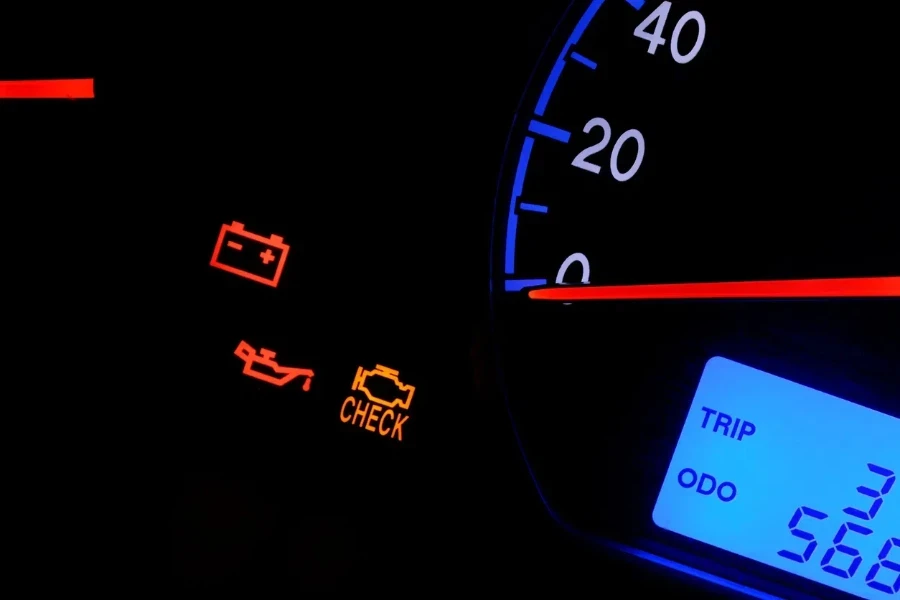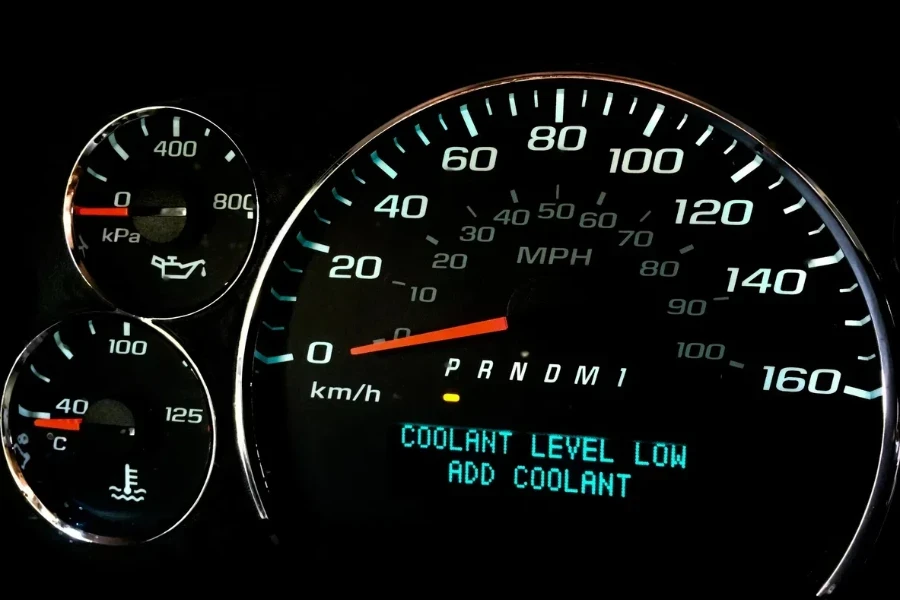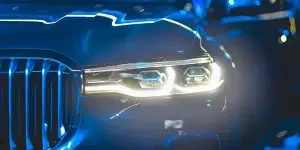The Land Rover Discovery gets respectable reviews and an average rating by most car experts and journalists due to reliability problems.
What Car, a UK car website, for instance, said the car failed to perform well in their recent reliability survey, ranking it sixth out of nine in the 7-seater cars category. Another review website in the US called Edmunds ranked it fifth out of seven 3-row luxury SUVs and scored it an overall 7/10.
In this article, we will discuss the five most common Land Rover Discovery issues owners find frustrating with their cars. Read on to learn more.
Table of Content
Land Rover Discovery review and trends
Common Land Rover Discovery issues
The bottom line
Land Rover Discovery review and trends

The Land Rover Discovery was released in 1989, and it was a crucial vehicle for Land Rover because it was the first new model series since Range Rover’s debut in 1970.
It was seen as a connection between the workhorse Land Rover Defender, originally Land Rover, and the luxurious Range Rover.
The original generation was called the Discovery 1 and 2, and it had most of its components, such as the chassis and four-wheel drive, shared with the Range Rover. However, its shape featured a boxy and rugged design.
The vehicle’s generations in recent years (Discovery 3, 4, and the current Discovery) shifted to an all-new and improved design with superior off-road performance and upscale interiors.
Land Rover, like many carmakers, is electrifying its lineup. Even though the current Discovery isn’t fully electric, hybrid or plug-in hybrid powertrains will be available in future versions before eventually getting fully electrified.
Common Land Rover Discovery issues
1. Air suspension problems
Air suspension issues are probably the most famous problem with the Discovery. The air suspension tuned for ride quality and off-road driving is complicated and susceptible to a number of failures.
The compressor is one issue. The air compressor which fills the air springs wears out quickly in harsh environments or with frequent offroading. Discovery owners can tell that their car’s air compressor is damaged when their car sags at one or more corners.
The other symptoms are an instrument cluster warning light and the compressor running constantly or intermittently.
Air leaks are another problem with the Land Rover Discovery suspension. The air springs are rubber and textile and can leak from age or debris. When air leaks from the airbags, it can cause the vehicle to sag, which leads to poor handling and ride quality.
There is also a valve block issue on the Land Rover Discovery. The role of a valve block is to regulate airflow through each air spring. Malfunctioning valve blocks can cause ride height issues, suspension faults, and ride height adjustment issues.
Air suspension repairs can be costly as most of the parts need to be changed. Most owners choose aftermarket suspension components or even swap to coil springs for more longevity, but with a trade-off of some off-road ability.
2. Electrical issues

Electrical faults have always been a problem with Land Rovers, and this is no exception with the Discovery. They include the following issues:
- Battery drain: A dead battery is caused by a parasitic drain, in which electric devices consume power when the car is not in motion.
- Failure of sensors: Sensors in the car, such as oxygen sensors, mass airflow sensors, and crankshaft position sensors, can fail, leading to performance problems, a warning light, and diagnostic fault codes.
- Infotainment system glitches: The infotainment system in Discovery occasionally has glitches such as freeze, slow response, and connectivity.
- Wiring harness issues: Over time, wiring harnesses can become damaged due to heat, a short circuit, or rodent activity, leading to intermittent electrical problems.
3. Engine problems

The Land Rover Discovery 5 tends to be better reliability-wise than its predecessors, but there are engine problems with it (primarily a concern with the Ingenium engine lineup).
Here are a few common engine problems with the Discovery SUV:
- Timing chain problems
This issue is a well-known problem, particularly with the Ingenium diesel engines in 2017-2020 Land Rover Discovery vehicles. The timing chains can be of poor quality and may stretch with time. This can also affect the plastic guides that the chains have along them, causing them to wear prematurely.
The problem can be detected when a rattling sound is heard during a cold start or when there is a restricted performance message on the dashboard. In extreme instances, the timing chain may jump teeth or snap and result in catastrophic engine damage.
The main reason for this flaw lies in the design and fabrication of the timing chain parts. Land Rover said they had updated the timing chain layout for later models. The key to staying alert for the symptoms is having the timing chain inspected and possibly replaced as a safety precaution for those who have an older Discovery 5.
- Turbocharger issues
More uncommon than timing chain problems, however, have been turbocharger failures on some Discovery 5 diesels.
Symptoms of this Land Rover Discovery fault are:
- Loss of power
- Engine management light illumination
- Blue exhaust smoke (if oil leaks from the turbo)
- A whining or whistling noise comes from the turbocharger that gradually gets worse and worse.
This could be because of oil depletion, pollution, or just plain neglect. Maintenance, such as oil changes with the correct specification, is essential to avoid turbo problems. If symptoms occur, then they need to be diagnosed and repaired as soon as possible.
4. Cooling system problems

Overheating can be a serious problem with any vehicle and is a common issue with the Discovery. Potential problems include:
- Leaks from radiator and hose: Radiators and hoses leak over time with age and wear, causing loss of coolant that leads to an overheating issue.
- Water pump: A broken water pump may cut off the coolant flow and overheat the engine.
- Problems with thermostat: A bad thermostat can cause the car to overheat or underheat because of its inability to pump coolant.
5. Problems with transmission (older models)
Transmission issues have been reported but are less frequent than others, especially in older Discovery models:
- Malfunctioning torque converter: If the torque converter malfunctions, the transmission may rough, shudder, or lose power.
- Transmission control module (TCM) failure: An incorrect TCM can cause shifting problems and transmission failures.
The bottom line
This article has explored the common problems with the Land Rover Discovery. Owners should note that proper maintenance, regular servicing, and correcting Land Rover Discovery faults are ways to lower these risks. If you are looking for Land Rover Discovery parts at wholesale prices, head over to the Alibaba.com website today.




